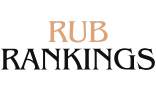Becoming a real estate agent can be an exciting and rewarding career choice, even if you have no prior experience in the industry. The real estate market offers endless opportunities for personal growth, financial independence, and the chance to help people find their dream homes. If you’re considering a career in real estate but feel intimidated by your lack of experience, this guide will provide you with a clear pathway to success.
Understanding the Role of a Real Estate Agent
Before diving into the steps to become a real estate agent, it’s essential to understand what the role entails. Real estate agents assist clients in buying, selling, and renting properties. Their responsibilities include:
- Client Representation: Acting as the intermediary between buyers and sellers.
- Market Research: Understanding the local real estate market, including pricing and trends.
- Property Marketing: Promoting properties through various channels, including online listings and open houses.
- Negotiation: Handling offers and counteroffers on behalf of clients.
- Documentation: Managing the paperwork required for transactions.
The Skills You’ll Need
While you may not have real estate experience, several transferable skills can set you up for success:
- Communication: Strong verbal and written communication skills are vital.
- Customer Service: A client-focused mindset will help you build relationships.
- Sales Skills: Persuasiveness and negotiation skills are key in closing deals.
- Organization: Keeping track of multiple listings, appointments, and paperwork is crucial.
- Problem-Solving: The ability to think on your feet and offer solutions is essential.
Steps to Become a Real Estate Agent
Step 1: Research Your State’s Requirements
Each state has specific requirements for obtaining a real estate license. Research your state’s real estate commission website for details on:
- Pre-licensing education: Most states require you to complete a certain number of hours in a real estate course.
- Examinations: You’ll need to pass a state exam covering real estate laws and practices.
- Background checks: Some states may require criminal background checks.
Understanding these requirements will help you navigate the licensing process more smoothly.
Step 2: Take Pre-Licensing Courses
Once you understand your state’s requirements, the next step is to enroll in pre-licensing courses. These courses are designed to provide you with the foundational knowledge necessary to succeed in real estate. You can choose between:
- In-person classes: Often offered at local real estate schools or community colleges.
- Online courses: Many organizations offer flexible online programs that allow you to study at your own pace.
Step 3: Study for the Exam
After completing your pre-licensing education, it’s time to prepare for the licensing exam. Here are some tips for effective study:
- Practice Exams: Take as many practice tests as possible to familiarize yourself with the format and types of questions.
- Study Groups: Joining a study group can provide support and additional resources.
- Review Key Topics: Focus on important areas like property laws, contracts, financing, and ethics.
Step 4: Pass the Licensing Exam
The licensing exam typically consists of two parts: national and state-specific sections. Ensure you understand the structure of the exam and manage your time wisely during the test. Upon passing, you will receive your real estate license.
Step 5: Choose a Brokerage
Once you’re licensed, the next step is to choose a brokerage to work with. A brokerage provides the support, resources, and legal framework for you to operate as an agent. When selecting a brokerage, consider:
- Training and Mentorship: Look for a brokerage that offers training programs for new agents.
- Reputation: Research the brokerage’s standing in the community and their market share.
- Commission Structure: Understand how the commission splits work and any fees you might incur.
Step 6: Build Your Network
Networking is crucial in the real estate industry. Here are ways to build your professional network:
- Join Local Real Estate Associations: Becoming a member of local, state, and national real estate associations can provide valuable connections and resources.
- Attend Industry Events: Participate in workshops, seminars, and conferences to meet other professionals.
- Leverage Social Media: Use platforms like LinkedIn, Facebook, and Instagram to connect with potential clients and industry peers.
Step 7: Develop Your Brand
As a new real estate agent, it’s essential to establish a personal brand that differentiates you from others. Consider the following strategies:
- Create a Professional Website: Your website should showcase your services, listings, and testimonials.
- Use Social Media Marketing: Share valuable content, such as market updates and home-buying tips, to engage your audience.
- Consider Blogging: A blog can position you as a knowledgeable expert in your field, helping to attract clients.
Step 8: Learn the Market
Understanding your local market is vital to your success as a real estate agent. Spend time researching:
- Neighborhoods: Get to know the various neighborhoods, including their amenities, schools, and price trends.
- Market Trends: Stay updated on market conditions, such as inventory levels and average days on the market.
- Comparative Market Analysis (CMA): Learn how to conduct a CMA to help clients price their properties accurately.
Step 9: Gain Experience
While you may start with no experience, there are ways to build your skills and knowledge on the job:
- Assist an Experienced Agent: Offer to work as an assistant or intern for a seasoned agent to gain firsthand experience.
- Participate in Open Houses: Volunteer to help with open houses to learn about the selling process and client interactions.
- Take Continuing Education Courses: Ongoing education can enhance your knowledge and keep you updated on industry changes.
Step 10: Market Yourself
Once you’re ready to take on clients, focus on marketing yourself effectively:
- Develop a Marketing Plan: Outline strategies to reach potential buyers and sellers, including online advertising, direct mail, and networking.
- Leverage Referrals: Encourage satisfied clients to refer you to friends and family.
- Follow Up: Maintain relationships with past clients by sending periodic updates and newsletters.
Step 11: Stay Compliant and Ethical
As a real estate agent, it’s crucial to adhere to ethical standards and legal requirements:
- Understand Fair Housing Laws: Familiarize yourself with laws that prevent discrimination in housing.
- Maintain Transparency: Be honest and transparent with clients about all aspects of the buying or selling process.
- Continue Your Education: Many states require ongoing education to keep your license active. Staying informed helps you serve your clients better.
Conclusion
Becoming a real estate agent with no experience is entirely achievable. By following the steps outlined in this guide, you can build a successful career in the real estate industry. Embrace the learning process, seek mentorship, and continuously develop your skills. With determination and the right strategies, you’ll be well on your way to helping clients navigate one of the most significant transactions of their lives. Your journey may be challenging, but the rewards are well worth the effort. Start today, and unlock the door to your future in real estate!



